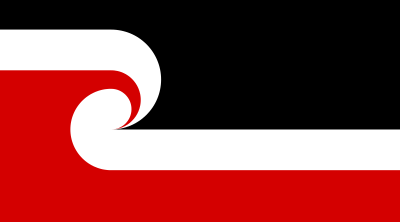Dienstag, 2. Juni 2015
Tino rangatiratanga and Taonga
surfergirl, 19:07h
Today I want to write a little bit about the two Maori terms "tino rangatiratanga" and "taonga" which have a very important significance for the Maori people in New Zealand.

The expression “tino rangatiratanga” refers to the Treaty of Waitangi in Maori understanding. It refers to Maori control of all things (Maori sovereignty). The word “tino” is an intensive or superlative meaning `very`, `full`, `total`, `absolute`. The word “rangatiratanga” comes from the word “rangatira” which means `chief`. It refers to responsibility, control, authority, oversight and sovereignty. The term “tino rangatiratanga” was used in two very important documents of history: In the Declaration of Independence (1835) which called New Zealand to be an independent and sovereign nation “where power and authority rested with the rangatira”. And the second document in which the term was used is the Treaty of Waitangi (1840) which used “tino rangatiratanga” with the promise that it would be guaranteed to Maori to retain their power. The queen agreed to the rangatira and the kiwi retaining full chieftainship (tino rangatiratanga) of their lands, their villages and all their things includings the Maori way of life.
The term “taonga” means a treasure in Maori culture and could be anything from a word to a memory. The historical definition differs from the modern one: In history, “taonga” was defined as “property procured by the spear”. Generally all interpretations about the term “taonga” include things like land, natural resources, fisheries, riparian water rights, language and spiritual beliefs. The second article of the Treaty of Waitangi guaranteed the Maori undisturbed possession of their taonga which meant in this context culture, tradition, lands, water, sites and other treasures (“taonga”).

The expression “tino rangatiratanga” refers to the Treaty of Waitangi in Maori understanding. It refers to Maori control of all things (Maori sovereignty). The word “tino” is an intensive or superlative meaning `very`, `full`, `total`, `absolute`. The word “rangatiratanga” comes from the word “rangatira” which means `chief`. It refers to responsibility, control, authority, oversight and sovereignty. The term “tino rangatiratanga” was used in two very important documents of history: In the Declaration of Independence (1835) which called New Zealand to be an independent and sovereign nation “where power and authority rested with the rangatira”. And the second document in which the term was used is the Treaty of Waitangi (1840) which used “tino rangatiratanga” with the promise that it would be guaranteed to Maori to retain their power. The queen agreed to the rangatira and the kiwi retaining full chieftainship (tino rangatiratanga) of their lands, their villages and all their things includings the Maori way of life.
The term “taonga” means a treasure in Maori culture and could be anything from a word to a memory. The historical definition differs from the modern one: In history, “taonga” was defined as “property procured by the spear”. Generally all interpretations about the term “taonga” include things like land, natural resources, fisheries, riparian water rights, language and spiritual beliefs. The second article of the Treaty of Waitangi guaranteed the Maori undisturbed possession of their taonga which meant in this context culture, tradition, lands, water, sites and other treasures (“taonga”).
... comment